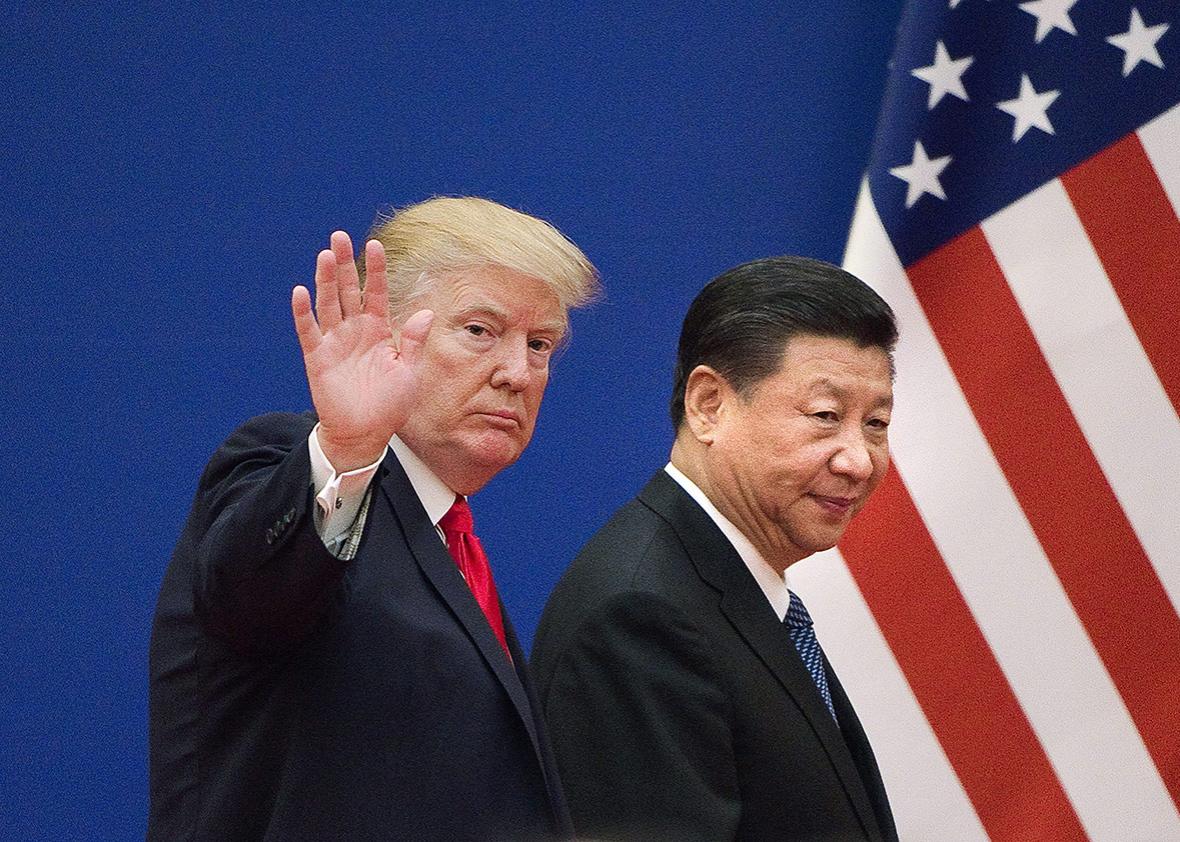President Xi Jinping must be thanking his lucky stars that, at the moment of his rise to total power in China, a man as weak and clueless as Donald Trump is president of the United States.
On his maiden voyage to Beijing, the projected high point of his 12-day trip through Asia, Trump teetered somewhere between a joke and a disgrace from an American perspective—and an unbridled godsend from Xi’s.
On Thursday, in a joint appearance with Xi, in front of American business leaders, Trump repeated his long-standing charge that U.S.-Chinese trade relations are “very one-sided and unfair,” but, in a new twist, he quickly added, “I don’t blame China. Who can blame a country that is able to take advantage of another country for the benefit of its citizens? I give China great credit.”
Trump has long expressed the belief that the world is in turmoil, and America is weaker than it once was, because our leaders have been “stupid.” As a tycoon who negotiated shrewd real estate deals, Trump believed—and campaigned on the promise—that, as president, he would negotiate shrewd trade deals that his predecessors couldn’t. In this context, his remark on Thursday seemed to suggest that, while the Chinese had been able to “take advantage” of other presidents, they’d find him to be a sharper counterpart.
In fact, though, Trump revealed himself—as he has in previous meetings with Xi, and with other leaders who have learned how to push his buttons—to be an easy mark. As evidence, Trump called Xi “a very special man” and lauded their “great chemistry,” which will allow the two of them to “do tremendous things” and solve “not only our problems but world problems…probably all of them.”
Trump is not the first president who has come to office thinking that strong foreign policies are built on cordial relations with foreign leaders, but he is one of the few who still seem wedded to the notion after a few trips around the block. “Great chemistry” can play a role in promoting good policies, but the chemistry grows out of—and amounts to nothing without—mutual interests or values.
He seemed to recognize the role of self-interest while praising China for reaping one-sided trade deals in the past, but not when he behaved as if his own preening bonhomie might yield more balanced deals in the future.
Trump will come home, touting the great business deals that grew out of this meeting—lucrative contracts for General Electric, DowDuPont, and Smithfield Foods, among others. But these agreements, which are not firm contracts, are mere tokens of goodwill on Xi’s part and certainly don’t amount to a structural change in the U.S.-China trade relationship. Even Secretary of State Rex Tillerson, who traveled with Trump on the trip, played down their significance, saying, “Quite frankly, in the grand scheme of a $300–500 billion trade deficit, the things that have been achieved thus far are pretty small.”
As for the big strategic goal that Trump thought Xi could help him pull off—pressuring North Korea to halt and dismantle its nuclear-weapons program—the visit seemed to bear no fruit at all. At his meeting with business executives, Trump was upbeat. “If he works on it hard,” he said of Xi’s efforts, “it will happen, there’s no doubt about it.” But Tillerson was more realistic, reporting that Xi “didn’t expect immediate results.”
Nonetheless, as was the case in Japan and South Korea, his earlier stop offs, Trump seemed to be having a great time. The leaders of all three countries have feted him with huge crowds, grand sights, and applause. Xi went the distance, staging what is well known to be this American president’s favorite spectacle, a full-dress military parade, which left Trump purring, “Nothing you can see is so beautiful.”
At their joint press conference Thursday, neither president took questions from reporters—a policy that Trump obeyed “at the Chinese insistence,” White House press secretary Sarah Huckabee Sanders explained, to the protest of many and a sign of who knows what other acts of insistence and concession will follow.
